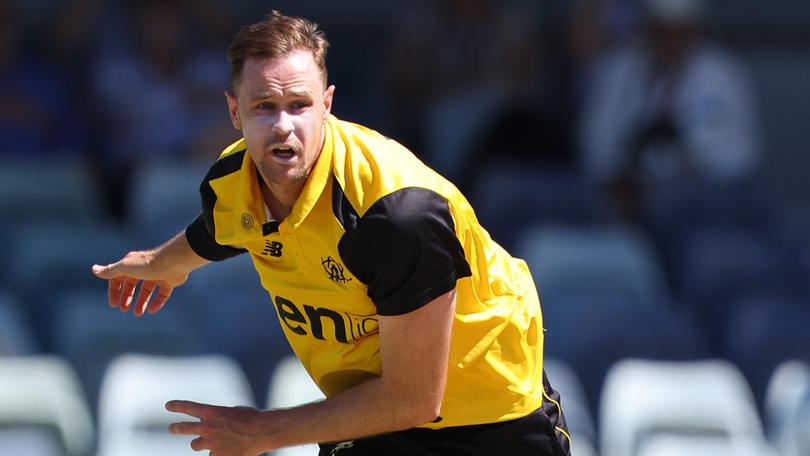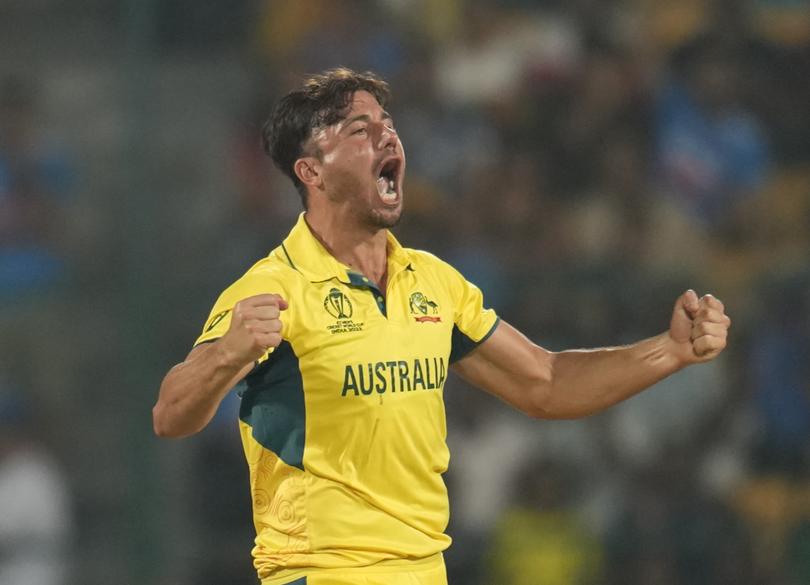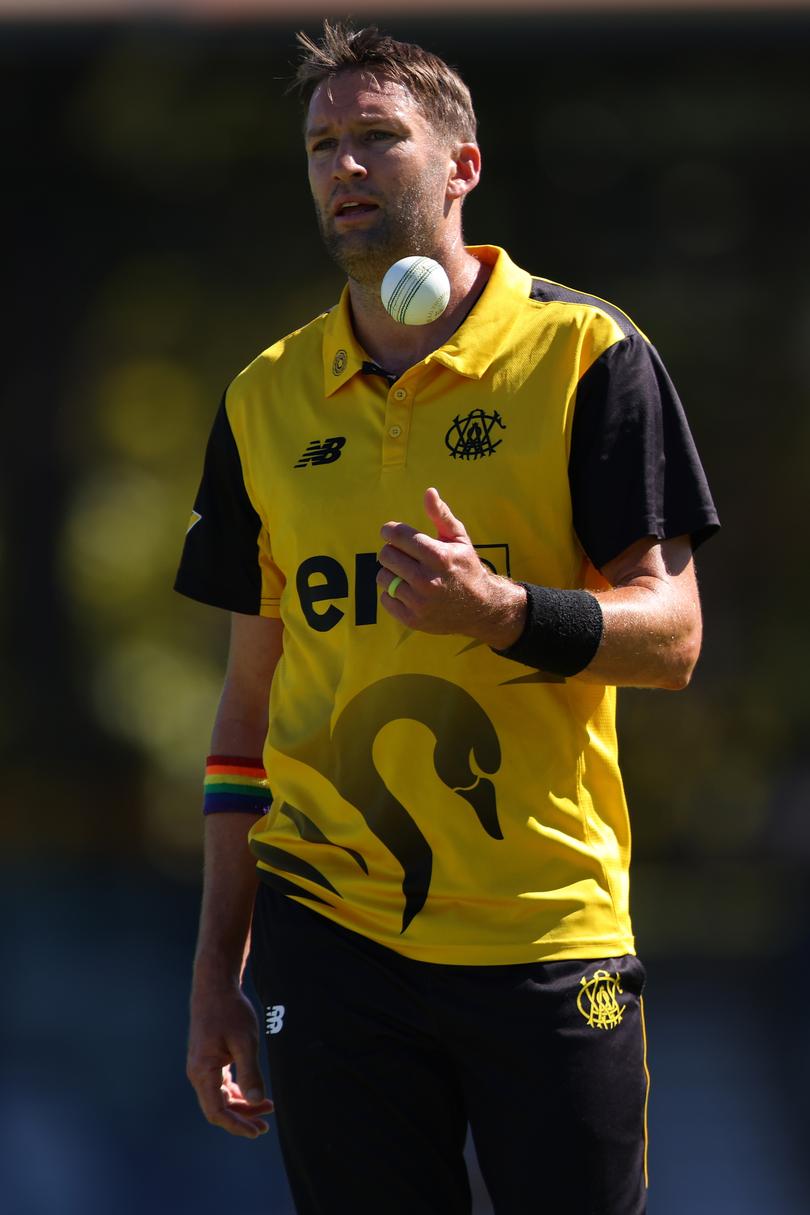Mitchell Johnson: No signings a sign of the times in cricket’s new world
The fact Ashton Agar, Marcus Stoinis, Jason Behrendorff and AJ Tye have given up State contracts next summer comes as the latest signpost in cricket’s move towards the freelancer model, writes Mitchell Johnson.

The fact Ashton Agar, Marcus Stoinis, Jason Behrendorff and AJ Tye have given up State contracts next summer comes as the latest signpost in cricket’s shift towards the freelancer model.
And with all of these players in their 30s, none of them can be blamed for wanting to be free to play in any Twenty20 leagues around the world where their services might be in demand.
Agar, 30, and Stoinis, 34, both held Cricket Australia contracts last summer, which they lost, while Behrendorff, 34, and Tye, 37, held State contracts and were part of WA’s Marsh Cup 50-over triumph despite not playing Sheffield Shield cricket.
Sign up to The Nightly's newsletters.
Get the first look at the digital newspaper, curated daily stories and breaking headlines delivered to your inbox.
By continuing you agree to our Terms and Privacy Policy.The quartet have earned the right to become freelancers, given the time and effort they have all put in for Western Australia.
The key talking point here is that these examples have shown that players can reject a contract but still remain on good terms with their State association and stay as part of the program.
The States are part of the decision, work with these players and understand each situation individually. Which is all very new.

In the end, the States will find it hard to compete with the new landscape when it comes to money but I think the flexibility and having some connection to the WA Cricket Association is important.
You have to look to the future and not just the now. The possibility of coaching and also having the experience of these players around is still very important for the development and growth of cricket in Western Australia.
These types of flexible arrangements will become more common as each season passes. It will be interesting to see if it works within the State set-ups or not. Will it cause any annoyances with other players who are committed to every game?
National contracts in Australia can be lucrative, especially when compared with other nations, but at State level they obviously don’t compare with what can be on offer on the T20 circuit. So we are seeing more and more domestic players facing this dilemma and choosing the path of not taking a contract.
If a cricketer was younger and on the fringe of the State squad and opted for this path, you would probably hear a bit more noise and maybe it would be a bit of a negative.
But this is the thing with franchise cricket. It has become so big and so money driven that it attracts players and they ultimately have to make a decision on which path their career takes.
As a young 18, 19, or 20-year-old getting large sums of money thrown at you to bowl four overs or slog a few quick sixes, it would be pretty hard to resist
Do you want to play first class cricket for your State and possibly play Test cricket for Australia? Or are the big dollars of T20 cricket playing in different teams around the world a stronger lure?
Of the four West Aussies, only Agar is probably a chance to play Test cricket in the future and he wants to remain available to play shield cricket despite not having a contract.
But more and more players – and at a younger age – are now facing a much more difficult choice around the world and that includes Australian domestic players and prospects.
I came through at a different time and my drive and focus was to play for Australia. I turned down a first-year contract to play in the Indian Premier League so I could focus on playing Test cricket and that’s a decision I was happy to make.
But as a young 18, 19, or 20-year-old getting large sums of money thrown at you to bowl four overs or slog a few quick sixes, it would be pretty hard to resist.

I guess it comes down to a few factors. What do you want to achieve in cricket? Do you want to represent your country and in what form/s? What legacy do you want to leave on the game? Are you a one team/State man or can you happily spend your year moving in and out of different franchise squads and play under different captains and coaches? The list is long and very individual.
What the four WACA players can say is they gave everything to playing for their mates, their State and their country.
Having retired from international cricket at 34, I did the same thing in some ways at the back end of my career. I decided to go to the IPL and play in the Big Bash League for a couple more years to wind down.
Those two tournaments were enough for me though, it wasn’t about trying to pick up a contract anywhere I could. In fact, I was never a huge fan of the Twenty20 format but always gave it my all every time I played.
